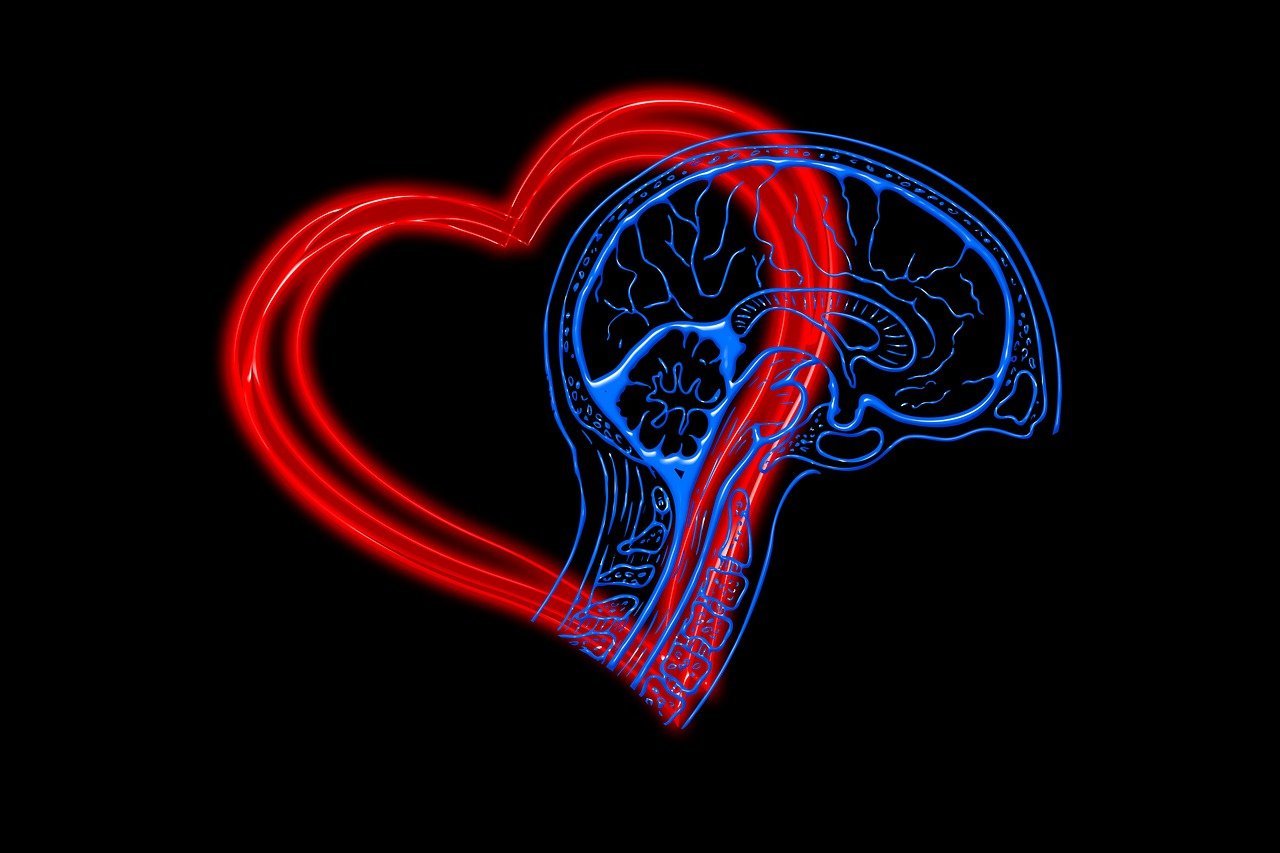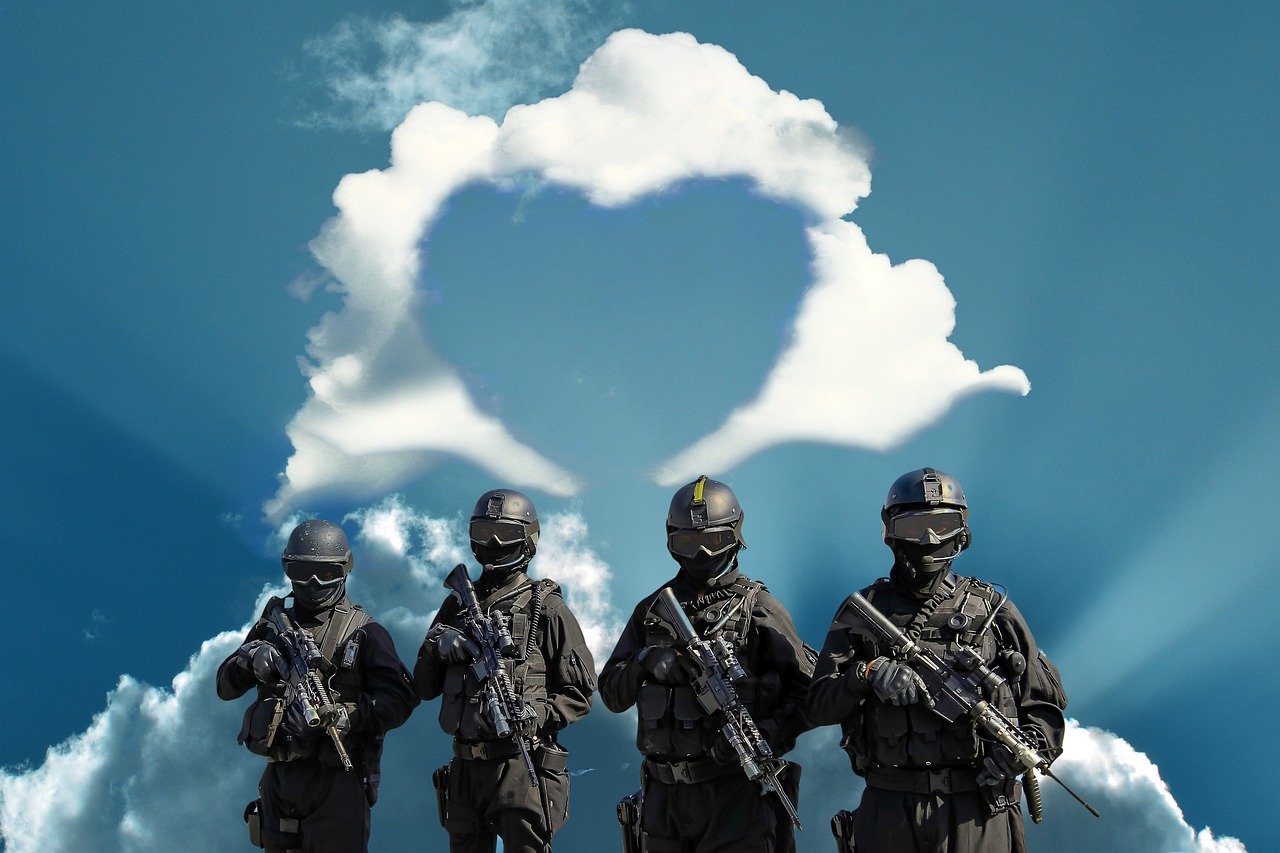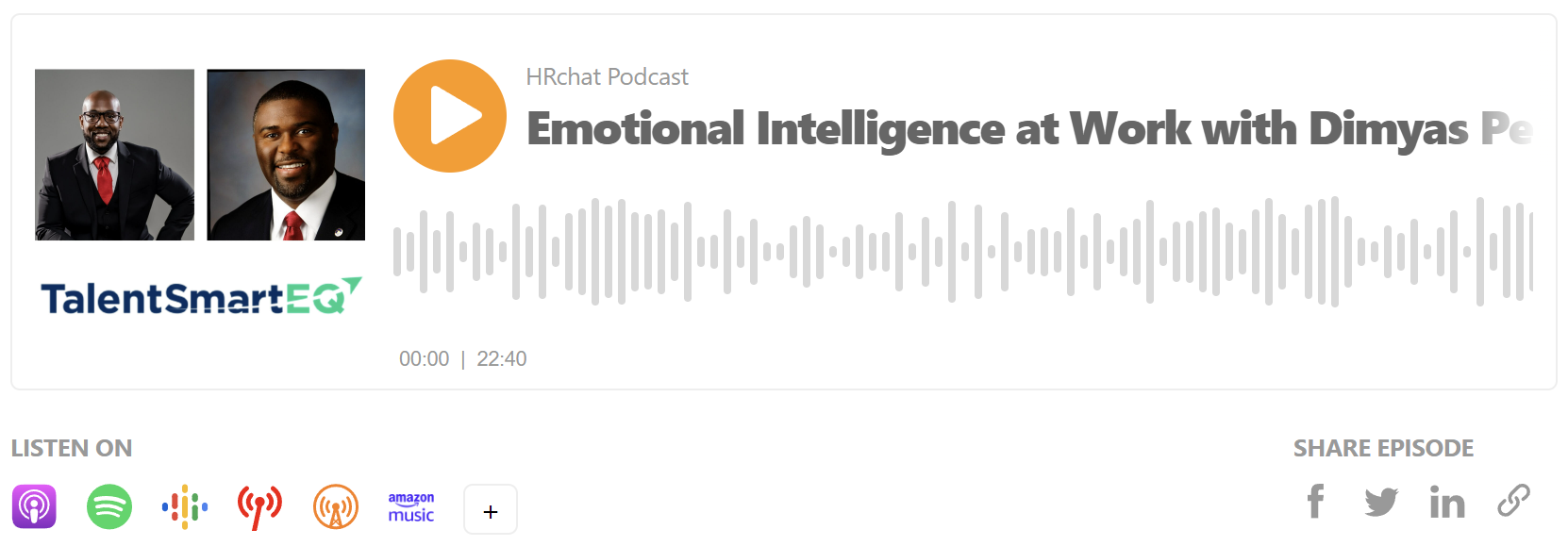
In episode 605 of the HRchat Podcast, we shed light on how emotional intelligence proves to be an indispensable trait in two of society’s most critical institutions – the Armed Forces and the Police Force – and ways lessons can be used in the corporate world.
In high-stakes environments like the military and law enforcement, personnel face challenges that demand not only physical prowess and tactical acumen but also exceptional emotional intelligence. Emotional intelligence encompasses the ability to understand, manage, and express emotions effectively, both in oneself and others.

Both the Armed Forces and the Police Force operate in high-pressure situations, where split-second decisions can have life-altering consequences. From military missions on foreign soil to handling volatile situations in law enforcement, the personnel of these institutions must navigate complex human interactions, which can range from diffusing tense confrontations to fostering trust and collaboration within their ranks. Emotional intelligence empowers them to navigate these scenarios with finesse and empathy, resulting in better outcomes for all involved parties.
My guests this time are Dimyas Perdue, Director of Military Solutions and Gregory Campbell, PhD, VP of Law Enforcement and Government at TalentSmart Inc.
As lead of TalentSmartEQ’s military vertical, Dimyas brings over 22 years of training and leadership experience. He is a retired United States Marine and prior to joining TalentSmartEQ, he served as the Senior Enlisted Advisor for the Lejeune Leadership Institute through Marine Corps University. During his tenure, Dimyas was responsible for the creation and/or management of many service-wide programs including the Force Fitness Instructor Program, Marine Leader Development Program, Slated Enlisted Leaders Orientation Course, and the Commander’s course, all of which serviced over 185,000 Marines Corps-wide.
As TalentSmartEQ’s Vice President of Law Enforcement & Government, Greg brings over 25+ years of experience to the team. His passion is in coalition building, strategic leadership, diversity, equity, and inclusion (DEI) leadership development, and helping unleash the power of EQ, especially in the law enforcement community.
Questions for Dimyas and Gregory include:
- How does EQ show up in the workplace?
- How does EI show up in the military and how can EI relate to the HR function?
- How can HR and leaders help to develop an understanding and practice of EI in the workplace?
- TalentSmart’s new Developing EQ™ in Policing program recognizes the importance of Emotional Intelligence (EQ) for our law enforcement officers and gives them the tools they need to engage with the community each and every day. Tell us more.
- On the TalentSmart website, it claims “Your team’s performance is measured by what they accomplish as a group, and you can increase your team’s efficiency and effectiveness by developing their team EQ.” Surely developing EQ is something for individuals? How can one develop the collective EI of a team?
More About Dimyas
Dimyas’ has expertise in communication, recruiting, ethical decision-making, and resilience and he has been a keynote speaker for agencies such as the Travis Manion Foundation, Mary Kay Corporation, Alabama Education Association, and numerous military commencement ceremonies. Dimyas has worked and delivered sessions with foreign nationals such as the Jordanian Armed Forces, the Japanese Air Force, and the Philippine Marines. His multicultural competence and humility coupled with his facilitation techniques were critical in developing strong partnerships and were key to mission accomplishment.
More About Gregory
Greg is a contributing author to Breakthrough Mentoring in the 21st Century by Dr. Walter McCollum and has published articles in various academic journals. Greg has a BA in Sociology and an MA in Behavioral Science with a specialization in Negotiation and Conflict Management from California State University, Dominguez Hills, and a PhD in Management with a specialization in Leadership and Organizational Change from Walden University. His dissertation investigated the relationship between emotional intelligence and leadership styles of law enforcement executives. He is also certified in Diversity and Inclusion from Cornell University and in emotional intelligence from Emotional Intelligence Learning Systems.
Related Content

